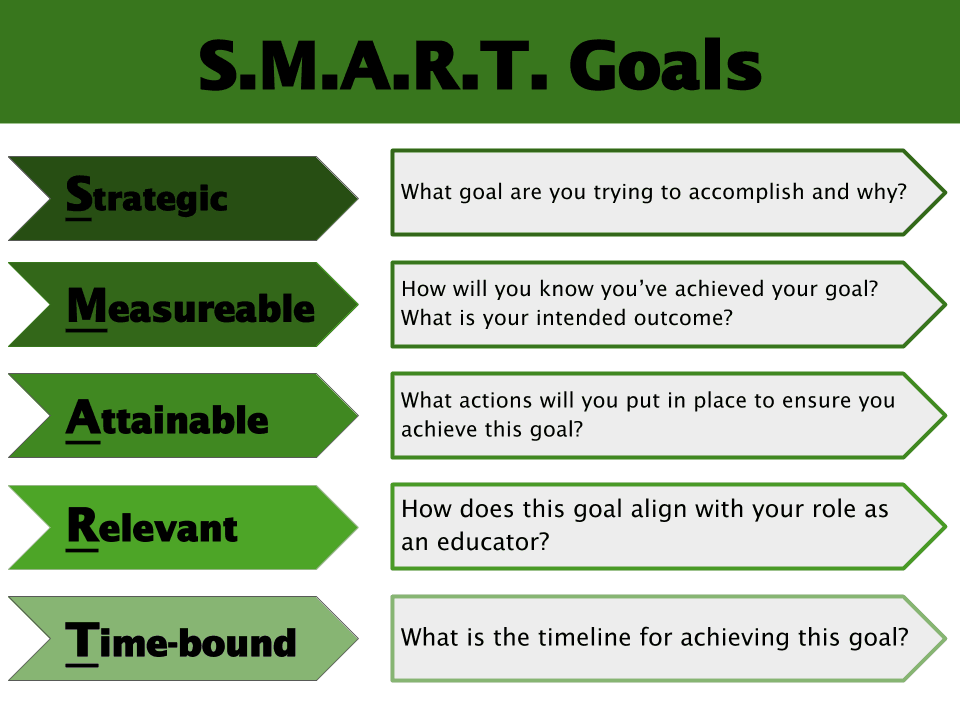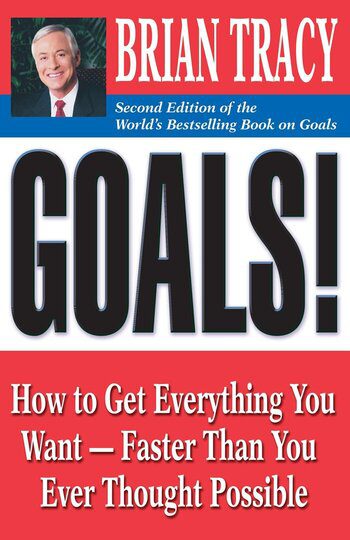Print | Kindle(eBook) | Audiobook
In his seminal book on goal setting, Author and Motivational Speaker Brian Tracy shares twenty-one principles of goal setting and goal achieving – he says: “There are no unrealistic goals; there are merely unrealistic deadlines.” A goal is a dream with a deadline, and if you do not set the goals, you can not magically achieve it. Goals by Brian Tracy is one of the few books I have read at least five times as goal setting is a continuous, lifelong process.
The great thing in this world is not so much where we stand, as in what direction we are moving. – OLIVER WENDELL HOLMES
Here are my favorite takeaways from reading, Goals!: How to Get Everything You Want — Faster Than You Ever Thought by Brian Tracy:
Importance of Goal Setting
Many thousands of successful people have been asked what they think about most of the time. The most common answer given by successful people is that they think about what they want—and how to get it—most of the time.
Unsuccessful, unhappy people think and talk about what they don’t want most of the time. They talk about their problems and worries and who is to blame for their situation most of the time. But successful people keep their thoughts and conversations focused on their most intensely desired goals. They think and talk about what they want most of the time.

Living without clear goals is like driving in a thick fog. No matter how powerful or well-engineered your car, you drive slowly, hesitantly, making little progress on even the smoothest road. Deciding upon your goals clears the fog immediately and allows you to focus and channel your energies and abilities toward what you really want. Clear goals enable you to step on the accelerator of your own life and race ahead rapidly toward achieving more of what you want in life.
“Like a computer, your goal-seeking mechanism is nonjudgmental. It works automatically and continuously to bring you what you want, regardless of what you program into it.”
Why People Don’t Set Goals
- They Think Goals Aren’t Important
First, most people don’t realize the importance of goals. If you grow up in a home where no one has goals or you socialize with a group where goals are neither discussed nor valued, you can very easily reach adulthood without knowing that your ability to set and achieve goals will have more of an effect on your life than any other skill. Look around you. How many of your friends or family members are clear and committed to their goals?
2. They Don’t Know How
The second reason that people don’t have goals is because they don’t know how to set them in the first place. Even worse, many people think that they already have goals. Alas! What they really have is a series of wishes or dreams, like “Be happy” or “Make a lot of money” or “Have a nice family life.”
They Have a Fear of Failure
The third reason that people don’t set goals is because of the fear of failure. Failure hurts. It is emotionally and often financially painful and distressing. All of us have experienced failure from time to time. Each time, we resolve to be more careful and avoid failure in the future. Many people then make the mistake of unconsciously sabotaging themselves by not setting any goals at which they might fail. They end up going through life functioning at far lower levels than are truly possible for them.
They Have a Fear of Rejection
The fourth reason that people don’t set goals is because of the fear of rejection. People are afraid that if they set a goal and are not successful, others will criticize or ridicule them. This is one of the reasons why you should keep your goals confidential when you begin to set goals. Don’t tell anyone. Let others see what you have accomplished, but don’t tell them in advance. What they don’t know can’t hurt you.
Goal Setting
To unlock and unleash your full potential, you should make a habit of daily goal setting and achieving for the rest of your life. You should develop a laser-like focus so that you are always thinking and talking about what you want rather than what you don’t want. You must resolve, from this moment forward, to become a goal-seeking organism, like a guided missile or a homing pigeon, moving unerringly toward the goals that are important to you.
The starting point of goal setting is for you to realize that you have virtually unlimited potential to be, have, or do anything you really want in life if you simply want it badly enough and are willing to work long enough and hard enough to achieve it.
The second part of goal setting is for you to accept complete responsibility for your life, and for everything that happens to you, with no blaming and no excuses.
With these two concepts clearly in mind—that you have unlimited potential and that you are completely responsible— you are now ready to move to the next step, which is to determine your financial future.
Seven Keys to Goal Setting
There are seven keys to goal setting. These are general principles that apply to virtually every goal. When you find a person who is not achieving his or her goals, it is because of a deficiency in one of these seven key areas.
- The first key is that goals must be clear, specific, detailed, and written down. A goal cannot be vague or general, like being happy or making more money. A goal must be specific, concrete, and tangible and something that you can clearly visualize and imagine in your mind.
- The second key to goal setting is that goals must be measurable and objective. They must be capable of being analyzed and evaluated by a third party. “Making lots of money” is not a goal. It is merely a wish or fantasy that is common to everyone. Earning a specific amount of money within a specific period of time, on the other hand, is a real goal.
- The third key is that goals must be time-bounded, with schedules, deadlines, and subdeadlines. In fact, there are no unrealistic goals; there are merely unrealistic deadlines. Once you have set a clear schedule and deadline for your goal, you work toward achieving your goal by that time. If you don’t achieve the goal by that deadline, you set another deadline—and, if necessary, another—and work toward that until you finally succeed.
- The fourth key to goal setting is that your goals must be challenging. They must cause you to stretch a little bit. They must be beyond anything you have accomplished in the past. Your goals should have about a 50 percent probability of success. This makes the process of striving toward the goals slightly stressful, but forcing yourself to stretch also brings out many of your best qualities.
- The fifth key is that your goals must be congruent with your values and in harmony with each other. You cannot have goals that are mutually contradictory. I have met people who want to be successful in business but also want to play golf every afternoon. It is clearly not possible to realize both of these goals at the same time.
- The sixth key is that your goals must be balanced among your career or business, your financial life, your family, your health, your spiritual life, and your community involvement. Just as a wheel must be balanced to revolve smoothly, your life must be balanced with goals in each area for you to be happy and fulfilled.
- The seventh key is that you must have a major definite purpose for your life. You must have one goal that, if you accomplish it, can do more to help you improve your life than any other single goal.
Twelve Steps to Set and Achieve Any Goal
Whenever you find a person who is underachieving, one of these ingredients is either missing or in short supply.
1. Have a Desire: What Do You Really Want?
Step number one in goal setting is to have a desire. You must have an intense, burning desire for your particular goal. This desire must be personal, something that you want for yourself. You can never want goals for someone else, nor can you get excited about a goal that someone else wants for you”
“The great question you must eventually ask and answer is, What do I really want to do in my life?”
2. Believe That Your Goal Is Achievable
The second step in goal setting is to believe or have a conviction. You must absolutely believe, deep in your heart, that you deserve the goal and that you are capable of attaining it. Belief is the catalyst that activates all your mental and physical powers.
Your level of confidence in your ultimate ability to succeed is the key determinant of your determination and persistence. It is therefore essential that you make your goals both believable and achievable, especially at the beginning.
3. Write Your Goal Down
The third step to goal achievement is for you to write it down. A goal that is not in writing is not a goal at all. Everyone who succeeds greatly works from clear, written, specific, detailed goals and plans, reviewed regularly, sometimes every day. I personally recommend that you write and rewrite your goals each day, day after day, week after week, and month after month. This programs them deep into your subconscious mind where they take on a life and power of their own.”
“Continually ask yourself, “How will I measure success in the achievement of this goal? What standards will I create? What benchmarks or scorecards can I use to measure my progress?”
4. Determine Your Starting Point
The fourth step is for you to analyze your starting point in the attainment of your major goal or goals. Where are you now? If you want to lose weight, the very first thing you do is to weigh yourself to determine your baseline or current weight.”
When you assess your situation by analyzing your starting point, you are forced to be honest with yourself. This enables you to set goals that are believable and achievable rather than setting goals that may be unattainable and self-defeating.
5. Determine Why You Want It
The fifth step is for you to decide why you want a particular goal in the first place. Make a list of all the ways that you will personally benefit by achieving that goal. The more reasons you have for wanting to achieve your goal, the more intense will be your desire. Reasons are the fuel in the furnace of achievement.
If you have one or two reasons for attaining a goal, you will have a small amount of motivation. But if you have forty or fifty reasons for achieving a particular goal, you will be so motivated and determined to succeed that nothing and no one will stand in your way.”
6. Set a Deadline
“Step number six is for you to set a deadline for the achievement of your goal. A deadline is a “best guess” of when you will attain the goal. It is like aiming at a target. You may hit the bull’s-eye, or you may hit to one side or the other. You will achieve fully half of the goals that you set for yourself before your deadline, and you will probably achieve half of your goals after the deadline. But you must have a deadline, just like a scheduled departure time for an airline flight, whether or not it leaves on the particular minute written on your boarding card.”
“If your goal is big enough, break your deadline down into sub deadlines.”
7. Identify the Obstacles in Your Way
The seventh step in goal setting is for you to determine the obstacles that are standing between you and your goal. Why aren’t you at your goal already? What is blocking you? What is holding you back? Of all the things that are holding you back from attaining your goal, what is the biggest single obstacle?”
“Average and mediocre people always blame their failures to make progress on the people and circumstances around them. But superior people always look into themselves and ask, “What is it in me that is holding me back?”
8. Determine the Additional Knowledge and Skills You Need
Step number eight is for you to determine the additional knowledge, information, and skills you will require to achieve your goal. Remember, in the information age, knowledge is the raw material of success. To achieve something you have never achieved before, you will have to do something you have never done before. You will have to become someone you have never been before. To go beyond your current level of accomplishment, you will have to acquire knowledge and skills you have never had before”
Every new goal should be combined with a learning objective. Whatever your goal, you must decide what you will have to learn and master to attain it.
Ask yourself, “What one skill, if I developed and did it in an excellent fashion, would help me the most to achieve this goal?” Whatever your answer, you should write it down, make a plan, and then work on developing that skill, every single day, until you master it. This decision alone could change your life”
9. Determine the People Whose Help You Will Need
Step number nine is for you to determine the people whose cooperation and assistance you will need to achieve your goal. Start with your family, your boss, and your coworkers. Think about your customers, your suppliers, and your banker. Whose help will you require, and what will you have to do to get them to help you? How can you earn their cooperation by helping them in some way?
10. Make a Plan: Put It All Together
Step number ten is for you to make a plan to achieve your goal. A plan is an organized list of tasks that you will have to complete to get from where you are to where you want to go. It is similar to the plan that you make when you are going on a vacation or taking a trip. You make a list of all the things you will have to take with you and all the things you will have to do before you depart and after you arrive.
“A plan is a list of activities organized by time, sequence, and importance. What do you have to do first, and what do you do second? What is more important, and what is less important? What has to be done before other things can be done? Of all the things that you have to do, what are the activities that are more important in achieving your goal than anything else?”
11. Visualize Your Goal Continually
Step number eleven in goal setting is for you to visualize your goal each day as if it were already attained. See your goal vividly in your mind’s eye. Imagine what it would look like if you had already accomplished it. Get the feeling that you would have if you were at your goal already. Imagine the pride, satisfaction, and happiness you would experience if you were already the person you wanted to be, with the goal that you want to enjoy.”
Repeat this visualization, combined with the feeling that goes with it, over and over during the day. Each time that you visualize and emotionalize, you program your goal deeper and deeper into your subconscious and superconscious minds. Eventually, your goal becomes a powerful unconscious force motivating and inspiring you day and night.
12. Never Give Up
Finally, the twelfth step to goal setting is to back everything you do with persistence and determination. Resolve in advance that you will never give up. Make the decision, long before you face any obstacles or difficulties, that no matter what happens, you will persevere until you finally reach your goal.
Practice Zero-Based Thinking
When you begin to plan your long-term future, one of the most valuable exercises you can engage in is “zero-based thinking.” In zero-based thinking, you ask this question: “Knowing what I now know, is there anything that I am doing today that I wouldn’t start again if I had to do it over?”
No matter who you are or what you are doing, there are activities and relationships in your life that, knowing what you now know, you wouldn’t get involved in.
It is difficult, if not impossible, for you to make progress in your life if you allow yourself to be held back by decisions you made in the past. If there is something in your life that you wouldn’t get into again today, your next question is, How can I get out, and how fast?
All the best in your quest to get Better. Don’t Settle: Live with Passion.



2 Comments
Pingback: 100 Books Reading Challenge 2021 – Lanre Dahunsi
Pingback: Review your Goals. | Lanre Dahunsi